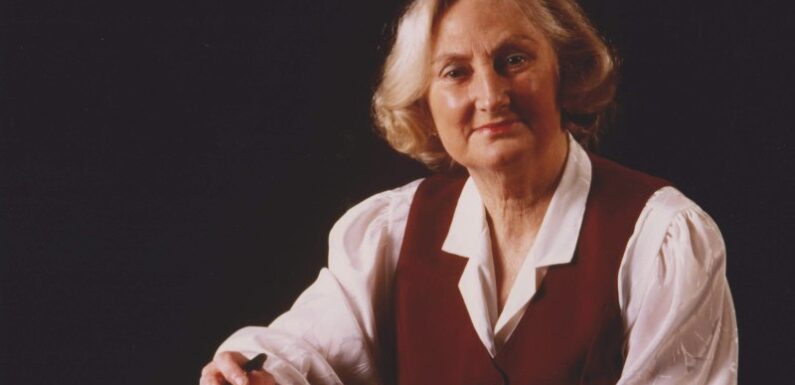
Save articles for later
Add articles to your saved list and come back to them any time.
JUNE MARGARET HEARN July 5, 1931-October 1, 2023
Born June Mackinnon, at the height of the Great Depression in 1931, June became the first working-class (and female) student from the slums of Collingwood to go to the University of Melbourne, where she obtained a bachelor of arts, before teaching for several years at Preston Girls High and Collingwood High School.
In her 30s, she returned to Melbourne University completing a master of arts and PhD, and forging a brilliant career as a leading academic and regular public commentator on industrial relations. While there she became the first female head of the Melbourne University Staff Association. After several years lecturing at the University of Melbourne and the Melbourne Business School, in 1982 she accepted an offer to become dean of the Faculty of Arts and head of the Toorak Campus of Victorian College.
In 1987, she became director and CEO of the Hawthorn Institute of Education, and following its amalgamation with the University of Melbourne, became a professor and in 1997 the inaugural managing director of Hawthorn International Education Ltd. Throughout her post working life she served on numerous government and semi-government boards and advisory committees, including serving as the first female deputy chancellor of Monash University (2001-2006).
Forever proud of her working-class background, June remained a staunch advocate for economic and social justice in all her public roles. In the 1940s, she was active in the Eureka Youth League and in the early 50s, at the height of the Cold War, she joined the Communist Party of Australia.
June Hearn.
From the mid-1960s, taking over from Lady Jessie Street, June became the national chair of the Australia-Soviet Friendship Society, an organisation engaged in forging people to people contacts between Australia and the USSR. While herself critical of the political and cultural decay she witnessed first-hand in the USSR, she nevertheless remained inspired by the many good soviet citizens she became friends with, who despite the difficulties and setbacks, were endeavouring to build a better society, one not based on exploitation. Ultimately, she was saddened, but not surprised by the demise of the USSR in 1991.
Late in life she served as a foundational board member of the Collingwood Industrial Magpies, an organisation engaged in assisting the sporting activities of remote Indigenous communities in the Northern Territory. In relation to this, she was looking forward to voting Yes at the upcoming referendum. Coming from several generations of Collingwood stock, it was fitting that she just managed to hang on to life until a few hours after the final siren and premiership victory of her beloved Magpies.
She is survived by her two sons, Bruce Hearn Mackinnon and Ian Hearn Mackinnon, her grandsons Alex and William and step-granddaughters Nik and Piyathida.
Most Viewed in National
Source: Read Full Article
